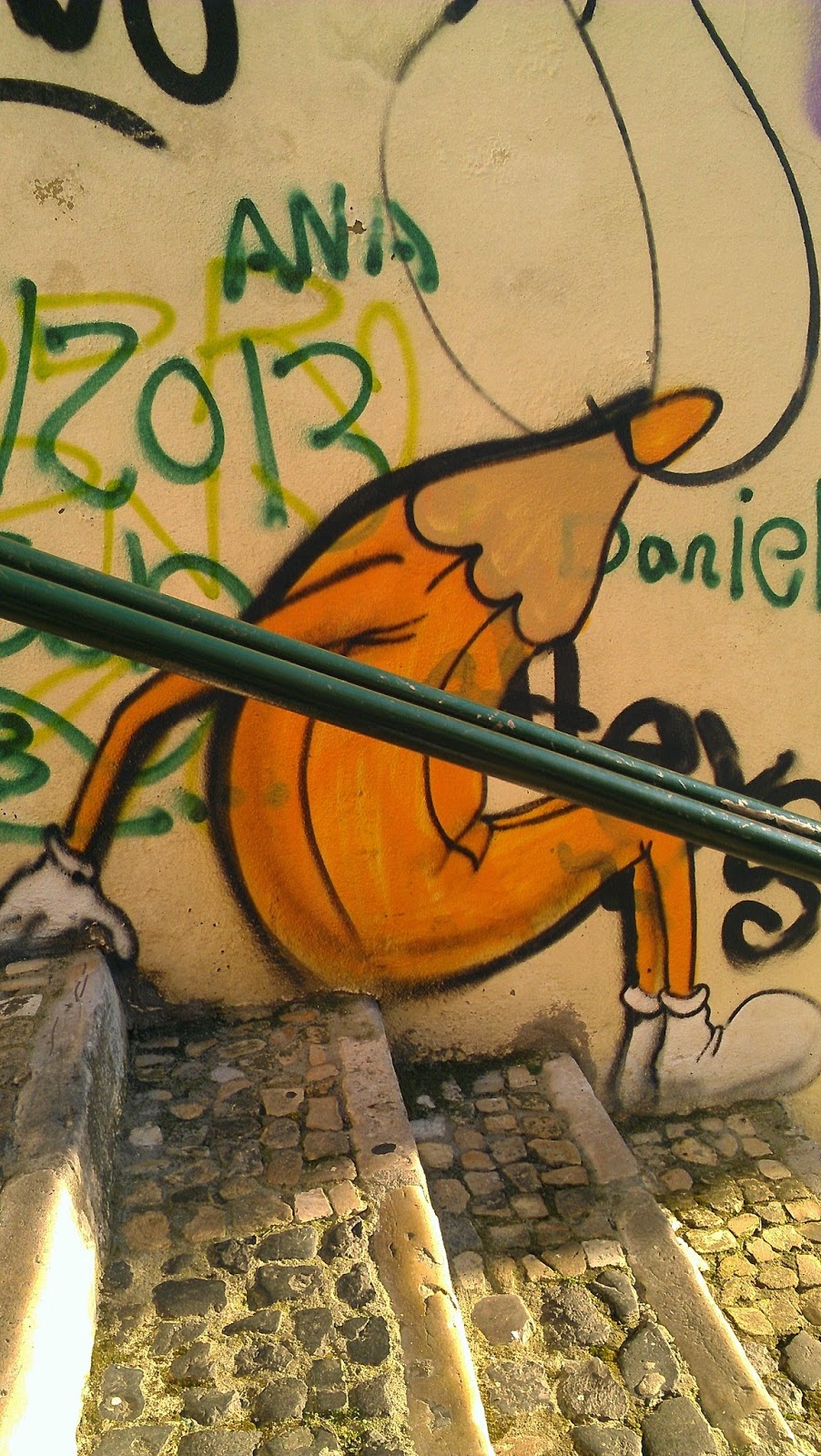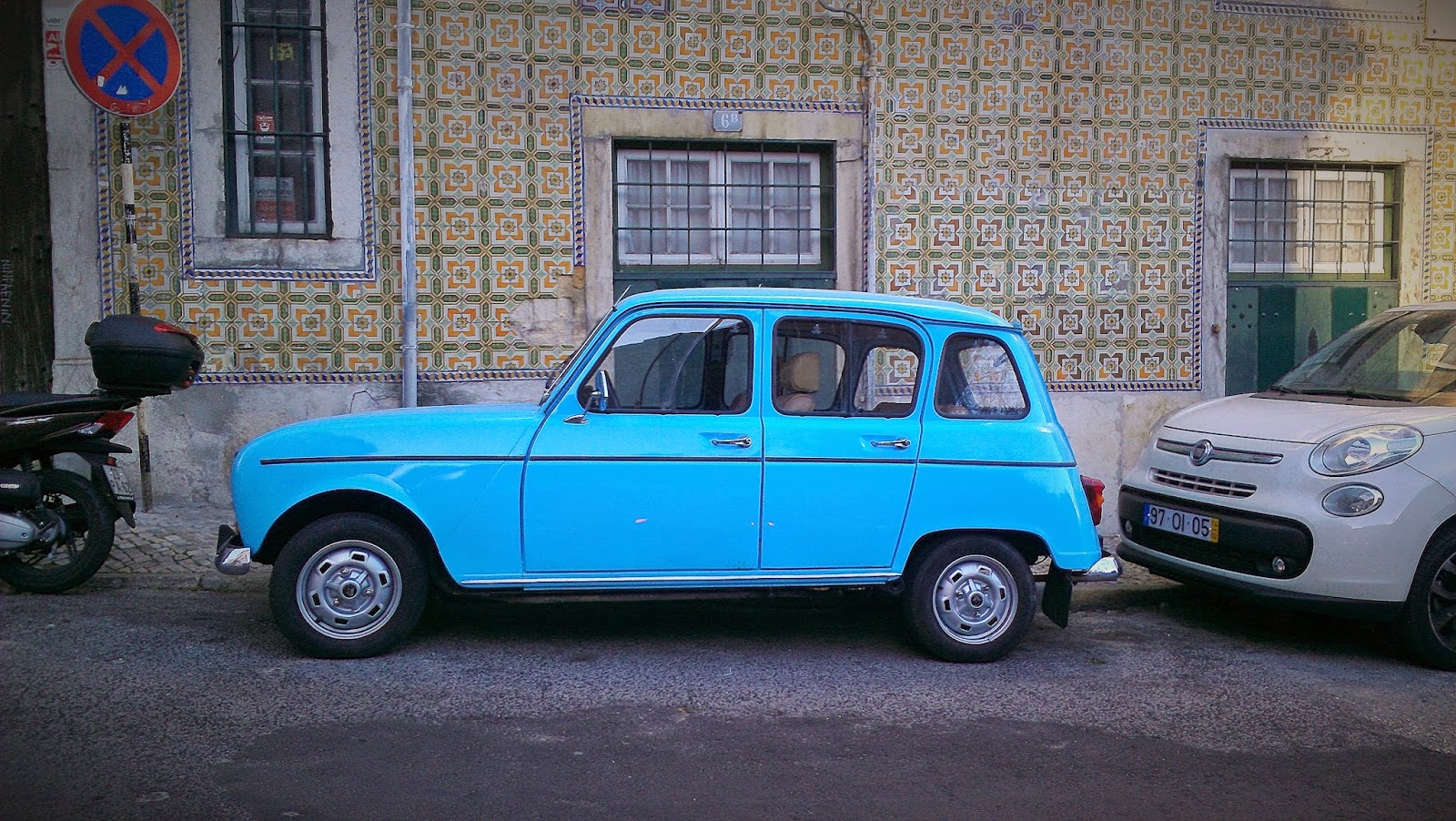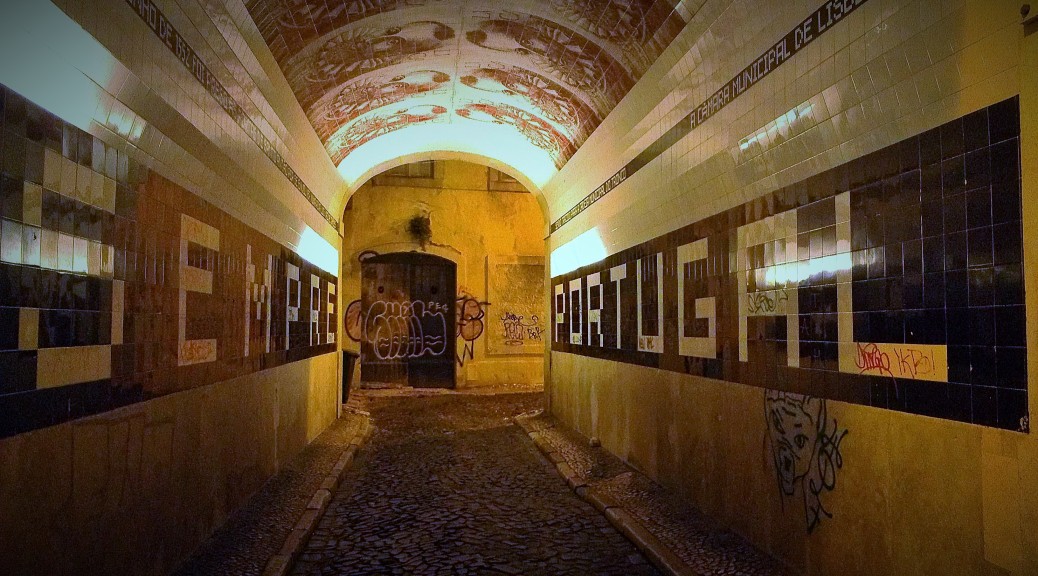I really can’t say enough good things about Lisbon. It’s a city I love for many reasons, not the least of which is the delicious and inexpensive food that I ate while I was there.
Here’s a rundown of the best food I ate in Lisbon:
Dorado dinner and wine at Cerqueira
A plate of fresh fried dorado steaks with all the fixings and a bottle of wine for under 10? Restaurant Cerqueira is worth the short but steep walk outside of the main tourist area of central Lisbon.
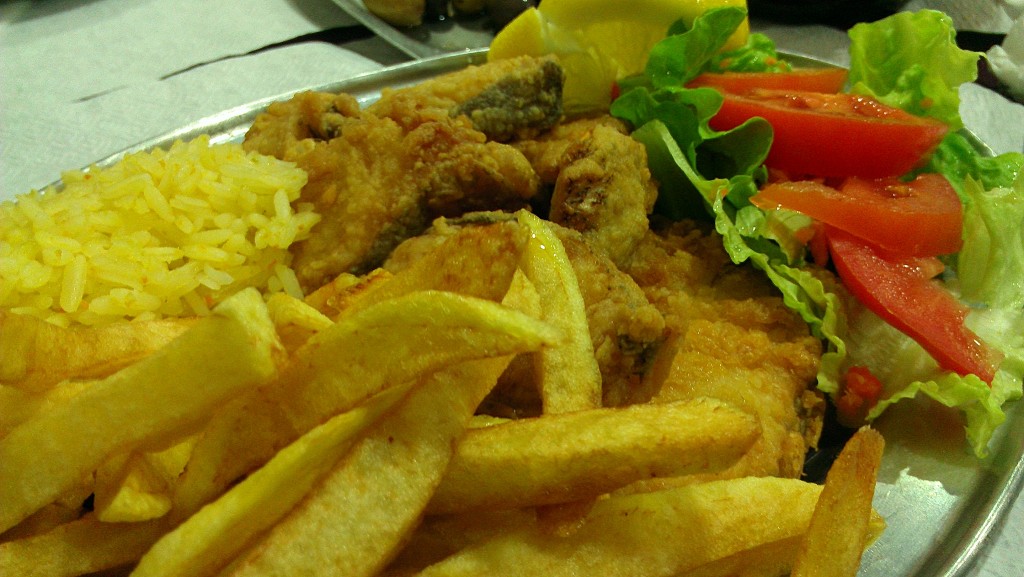
Grilled sardines
The famed dish of Lisbon. I love fresh fish that’s simply prepared. These sardines were both fresh and simple, yet full of flavor.
Pastel de Belem
Seductively creamy, subtly sweet, surrounded by a light flaky pastry and topped with an angelic dusting of cinnamon. The pastel de Belem begs to be eaten with a strong cup of espresso. Who am I kidding? It begs to be eaten whenever, wherever and with whatever.
Salmon burger w/seaweed ‘slaw’ on choco ink bun
Once again, my love of fish was perfectly sated in Lisbon. At the Mercado da Ribeira this gourmet burger stand served up a grilled salmon patty on a bun tinted black with squid ink. Unbelievably good.
Bacalao w/garbanzo puree
There were so many gourmet and well-priced food options in the Mercado da Ribeira’s dining hall, that my travelmate and I decided to split one (the salmon burger), so we could both have two dishes. My second – this perfectly cooked cod filet over a warm garbanzo spread was as delightful to eat as it was to look at. I’m pretty sure I embarrassed myself slightly via my inappropriate moans while eating this dish.
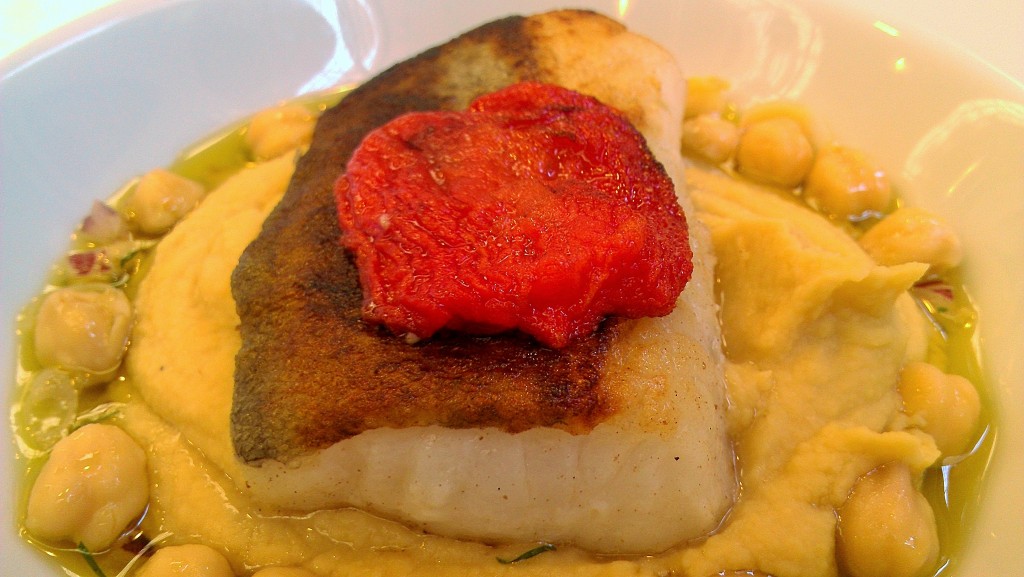
Bifana
Just before leaving Lisbon, I stopped by Café Beira Gare, which is rumored to serve the best bifana in Lisbon. This deceptively simple pork sandwich had my mouth watering for hours after. It’s best accompanied by a cold Portuguese beer.

Have you eaten your way through Lisbon yet? What are some your best food finds in Lisbon?
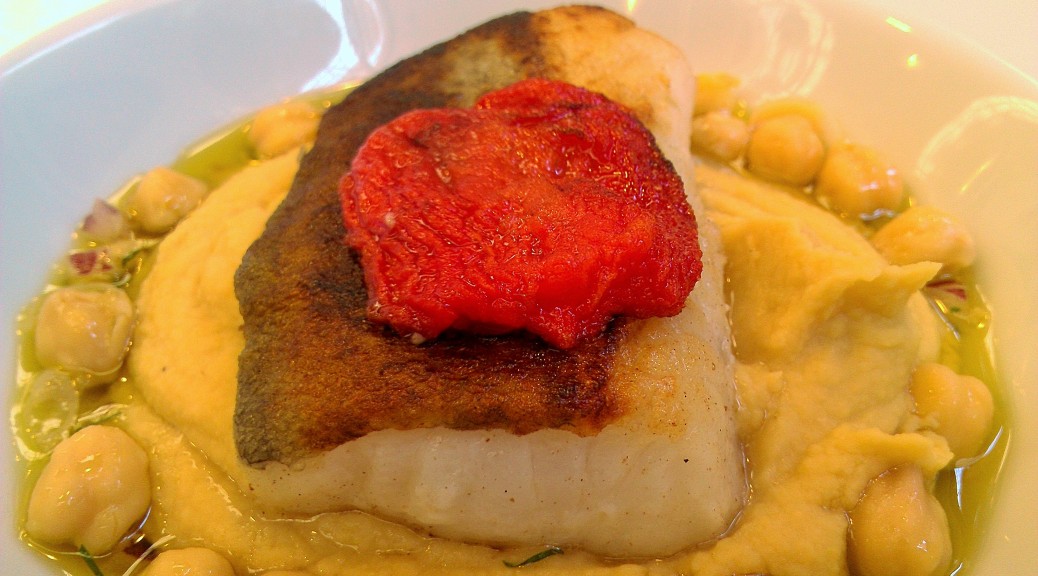
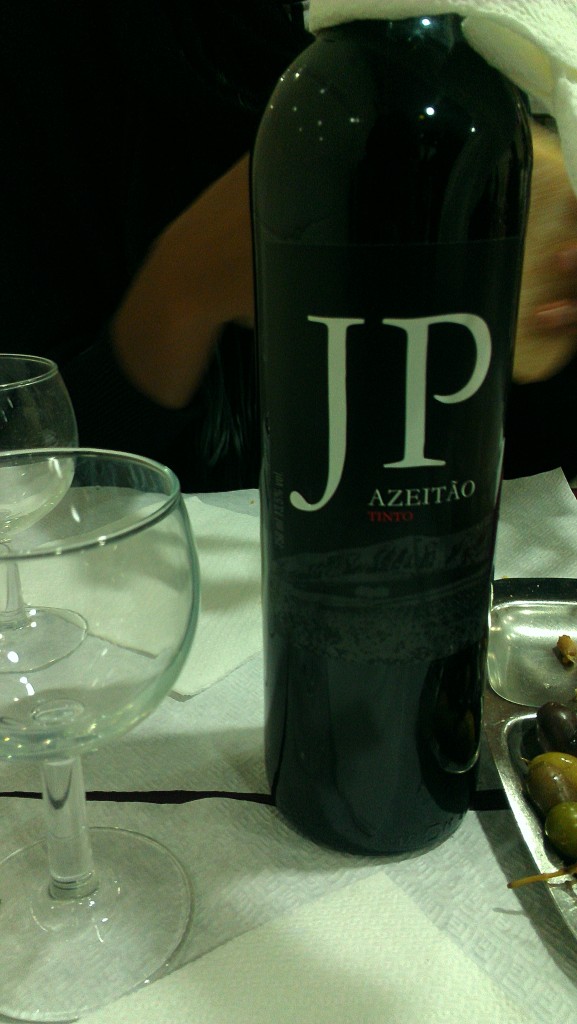
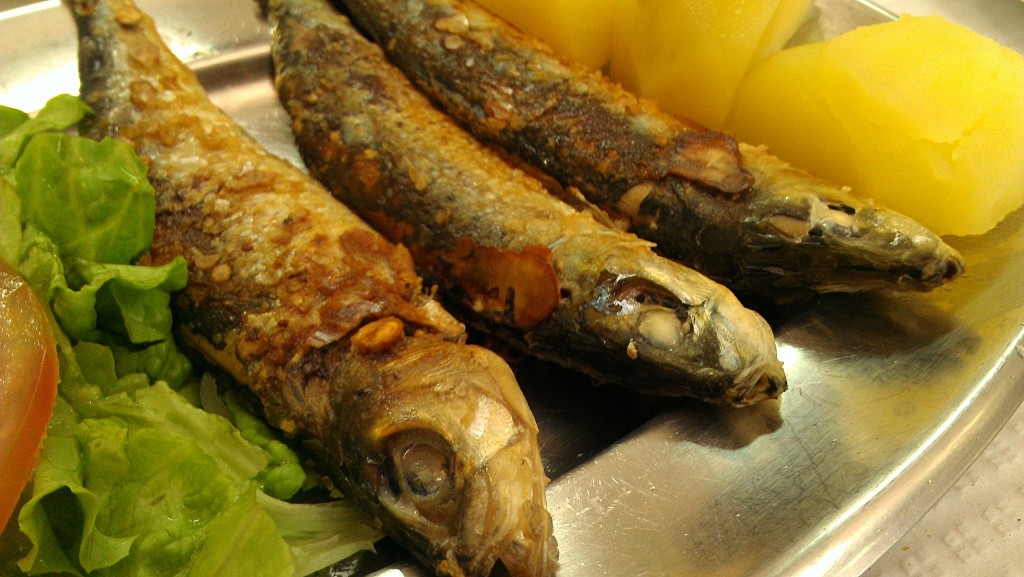

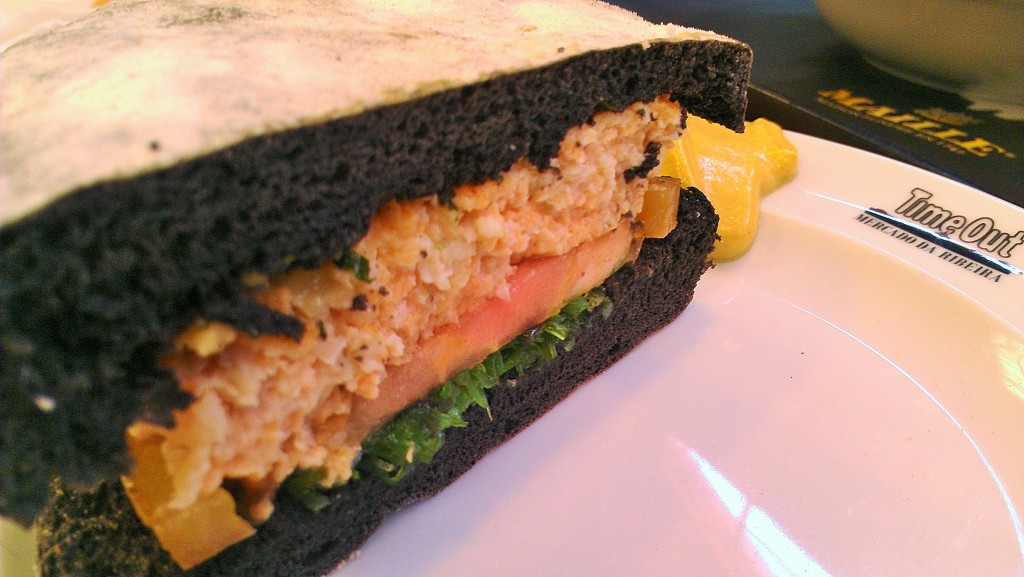
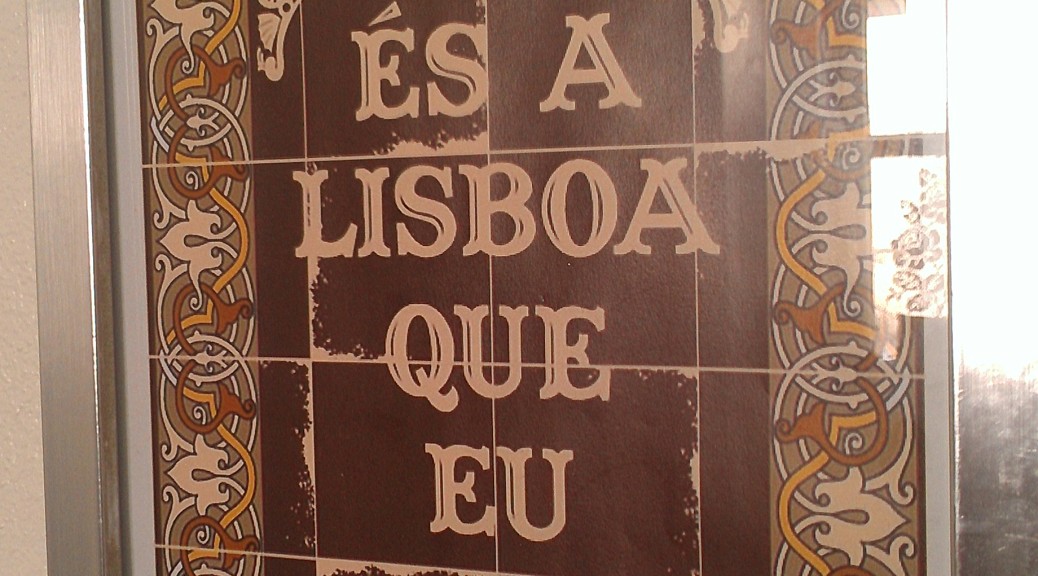




.jpg)
.jpg)
.jpg)

.jpg)
.jpg)
.jpg)
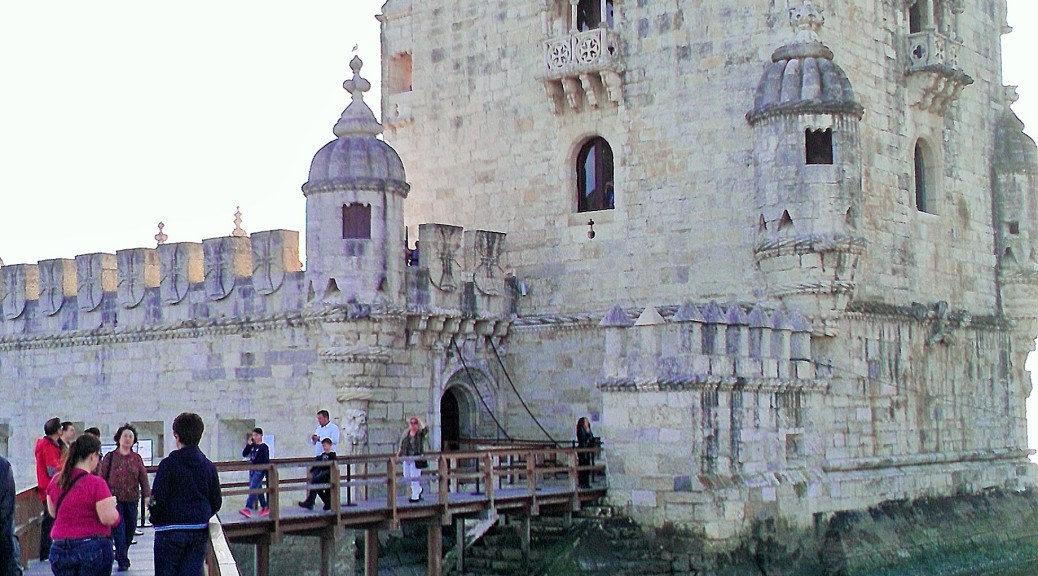





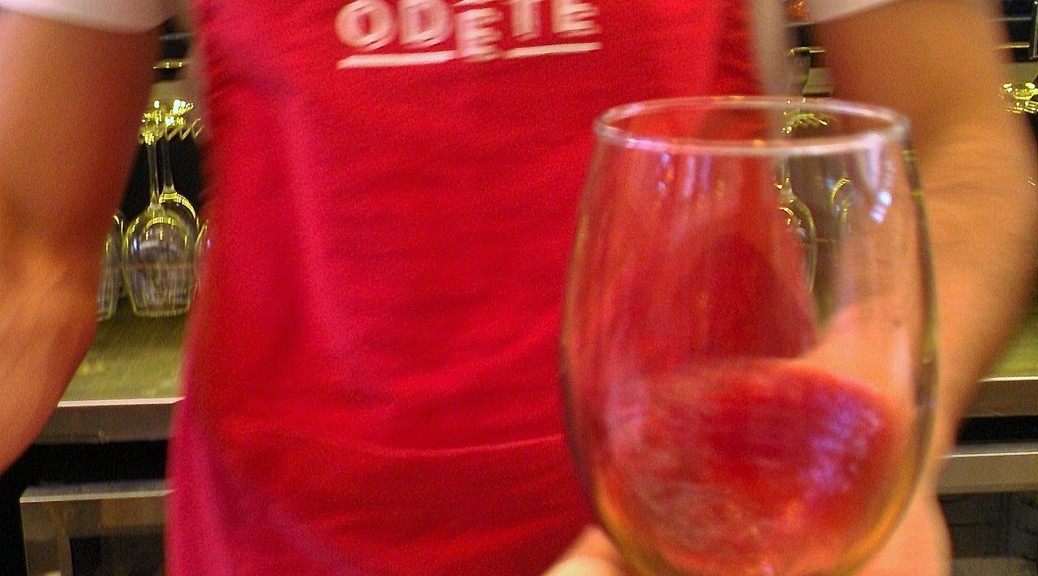

.jpg)
.jpg)
.jpg)
.jpg)
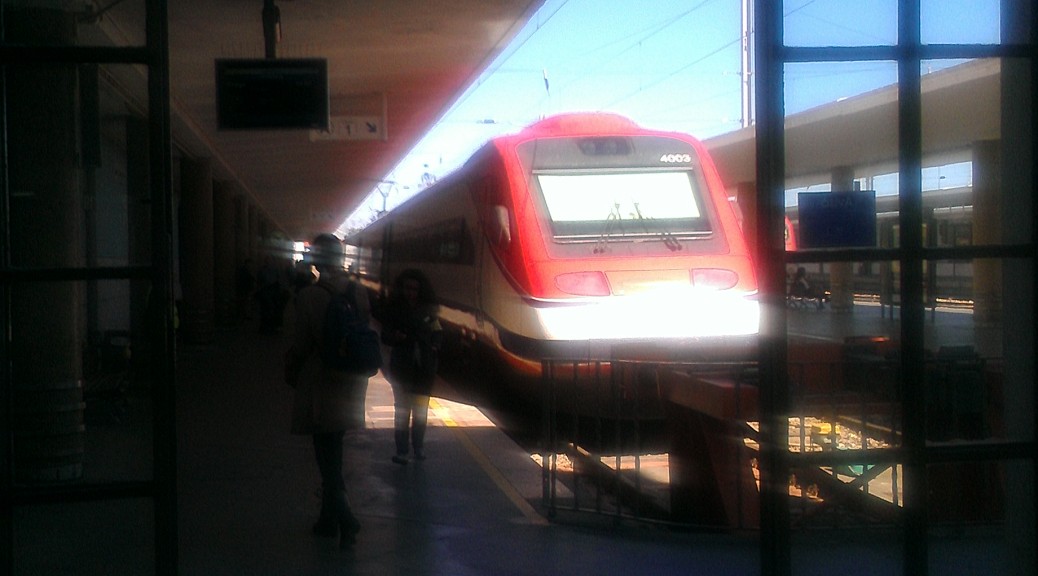
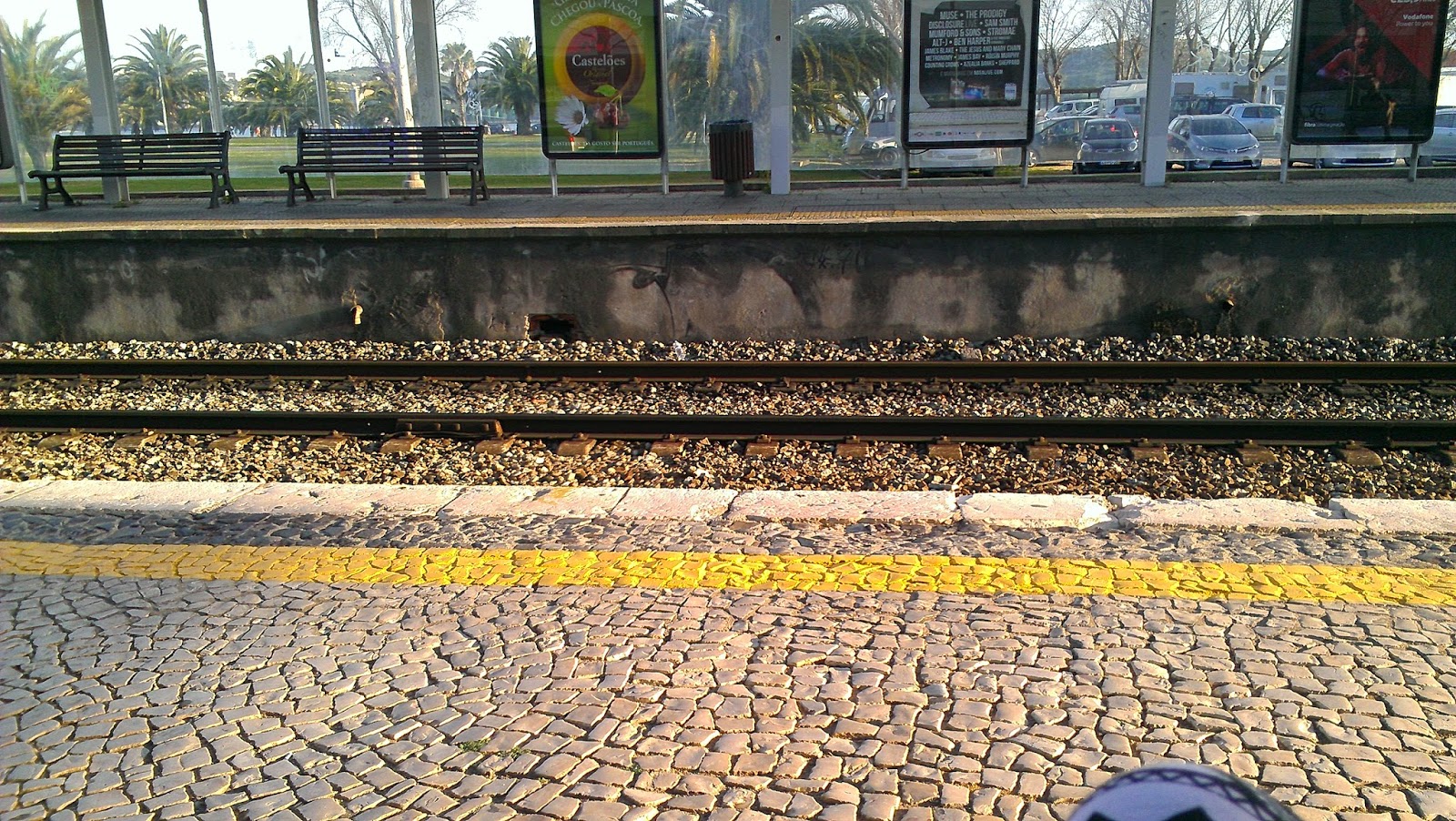

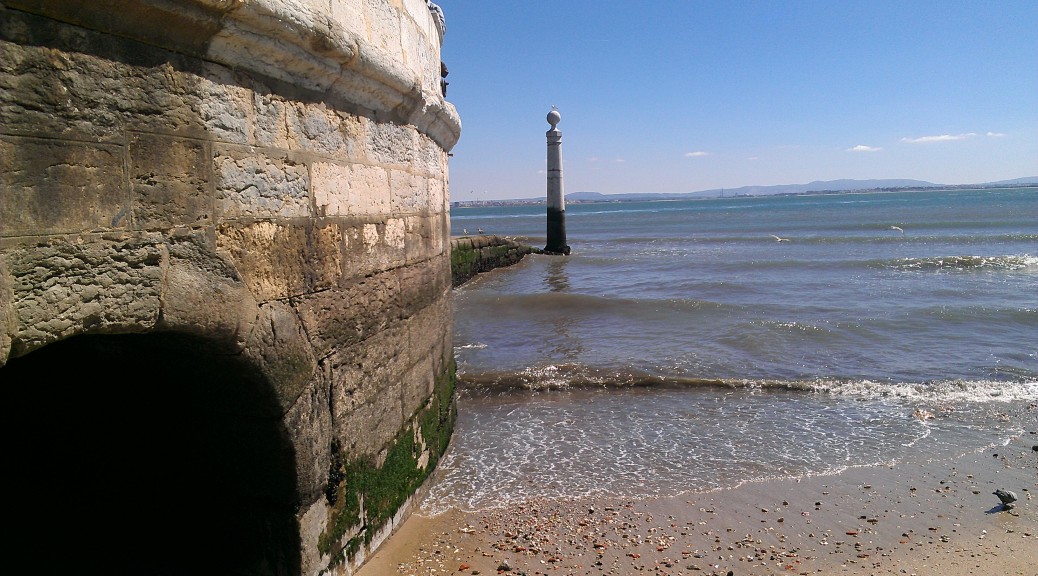






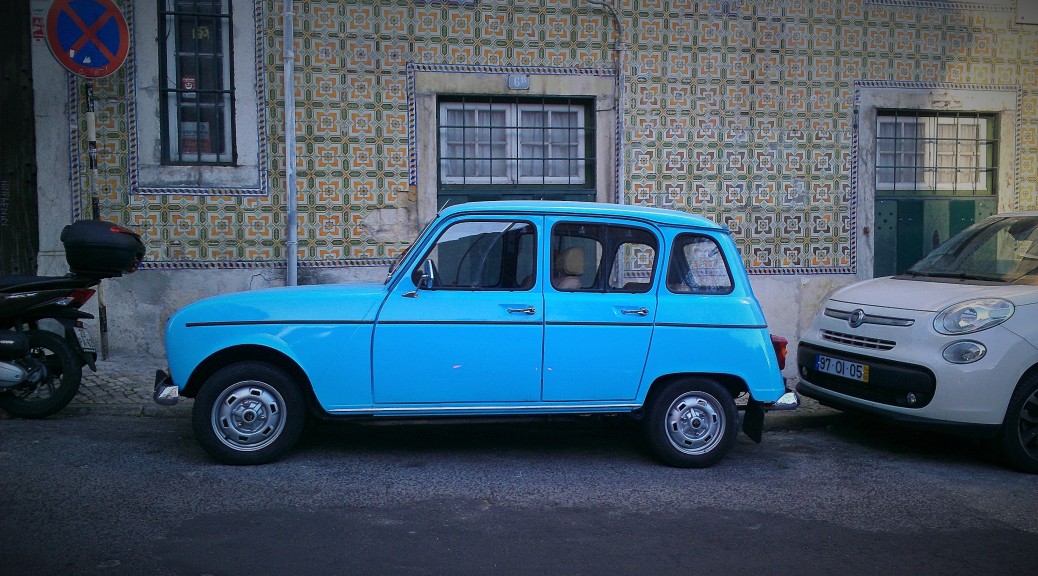
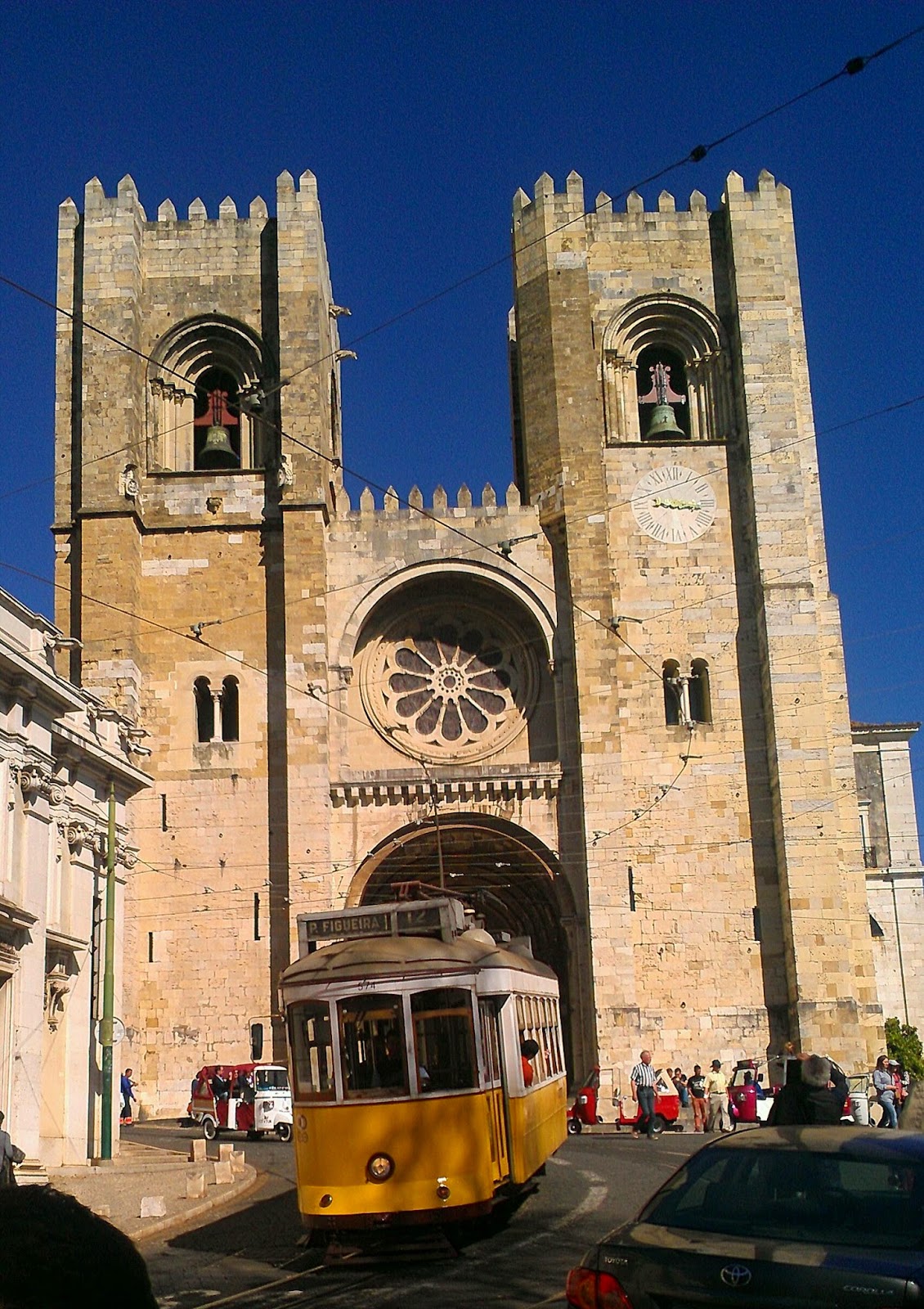
.jpg)
.jpg)
.jpg)
